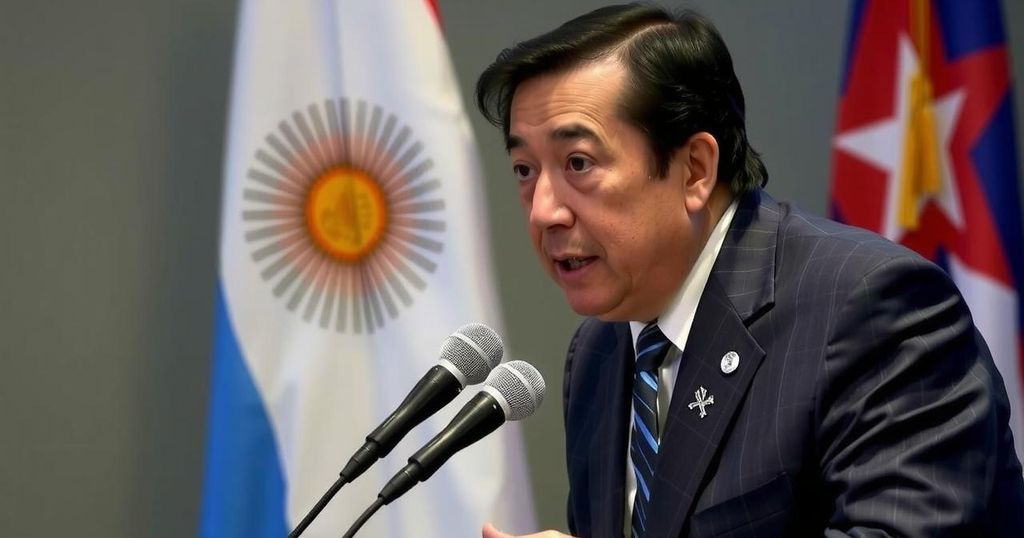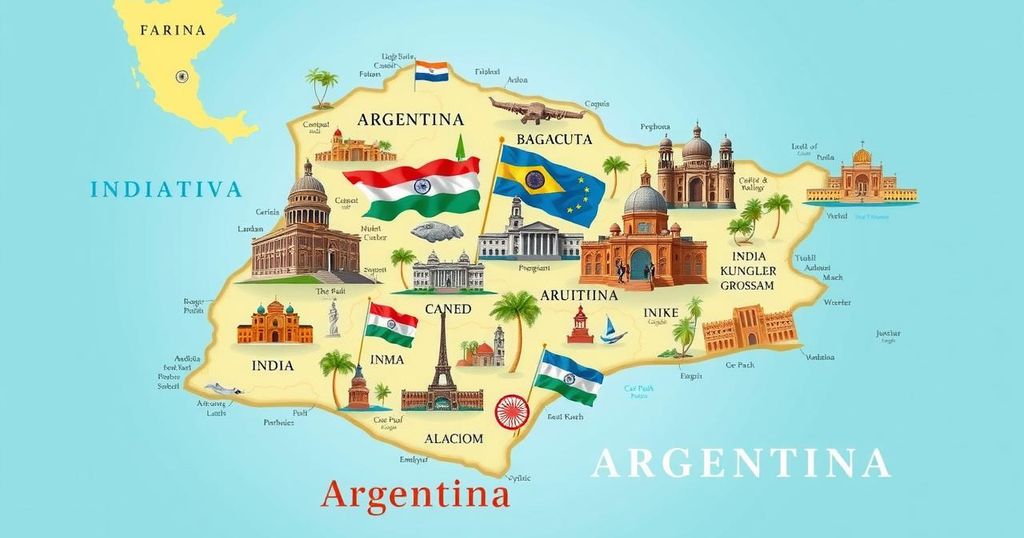Argentina’s Diplomatic Shift: President Milei Dismisses Foreign Minister Amidst Policy Realignment
President Javier Milei of Argentina has dismissed Foreign Minister Diana Mondino after the nation voted in favor of lifting the US embargo on Cuba at the UN. This marks Argentina’s first deviation from aligning with US and Israeli policies under Milei’s administration. The new Foreign Minister, Gerardo Werthein, will lead a foreign policy firmly opposed to the Cuban government, reflecting Milei’s ideological pivot away from the country’s previous leftist alignment with Cuba.
In a recent political maneuver, President Javier Milei of Argentina has dismissed Foreign Minister Diana Mondino following the nation’s vote at the United Nations in favor of lifting the United States’ economic embargo on Cuba. This vote marks a significant pivot in Argentina’s foreign policy, as it aligns with the sentiments of 187 other member states, while only the United States and Israel opposed the resolution. This decision is notable as it is the first instance since President Milei’s tenure began that Argentina has deviated from the foreign policy stance traditionally aligned with the US and Israel. In place of Mondino, who had fostered a positive image for Argentina on the international stage, Ambassador Gerardo Werthein has been appointed as the new Foreign Minister. Following this change, President Milei’s administration has reiterated its firm opposition to the Cuban government, declaring, “Our country is categorically opposed to the Cuban dictatorship and will remain firm in promoting a foreign policy that condemns all regimes that perpetrate human rights violations.” Historically, the Argentine government has maintained supportive relations with Cuba, particularly under the previous left-wing Peronist administration, which advocated for the lifting of the embargo imposed by the US due to Cuba’s shift towards communism in the 1960s. In reciprocation, Cuba has supported Argentina’s claims over the disputed Falkland Islands, a territory contested with Great Britain since the brief but intense conflict in 1982. The recent actions of President Milei indicate a robust reorientation of Argentina’s diplomatic relations, as articulated in a statement from his office asserting that the country is undergoing significant changes and that its diplomatic efforts must reflect values associated with freedom and human rights, elements they associate with Western democracies. Observers note that tensions had been escalating between Milei and Mondino on various foreign policy matters, thus foreshadowing her dismissal, despite her previous role in mitigating potential diplomatic crises caused by the president’s controversial remarks.
The article addresses a key shift in Argentina’s foreign policy under President Javier Milei, following the nation’s vote in support of the UN resolution to lift the US embargo on Cuba. The new government’s stance diverges sharply from that of the preceding administration, which fostered strong ties with Cuba and opposed the embargo established by the US in the early 1960s. The historical context of the relationship between Argentina and Cuba is underscored by mutual support regarding territorial disputes, notably over the Falkland Islands, and the ideological disagreements rooted in the Cold War era. This political shift reflects broader changes within Argentina and a pronounced rejection of leftist policies previously upheld by the Peronist government.
In summary, President Javier Milei’s dismissal of Foreign Minister Diana Mondino following Argentina’s UN vote in favor of lifting the US embargo on Cuba exemplifies a decisive shift in the country’s foreign policy. This action underscores Milei’s administration’s commitment to distancing itself from former leftist policies and adopting a more hardline stance against regimes they deem dictatorial. The transition in leadership within the foreign ministry signifies the government’s intent to align more closely with the values proclaimed by Western democracies, while simultaneously addressing internal friction within its diplomatic approach.
Original Source: www.bbc.com




Post Comment